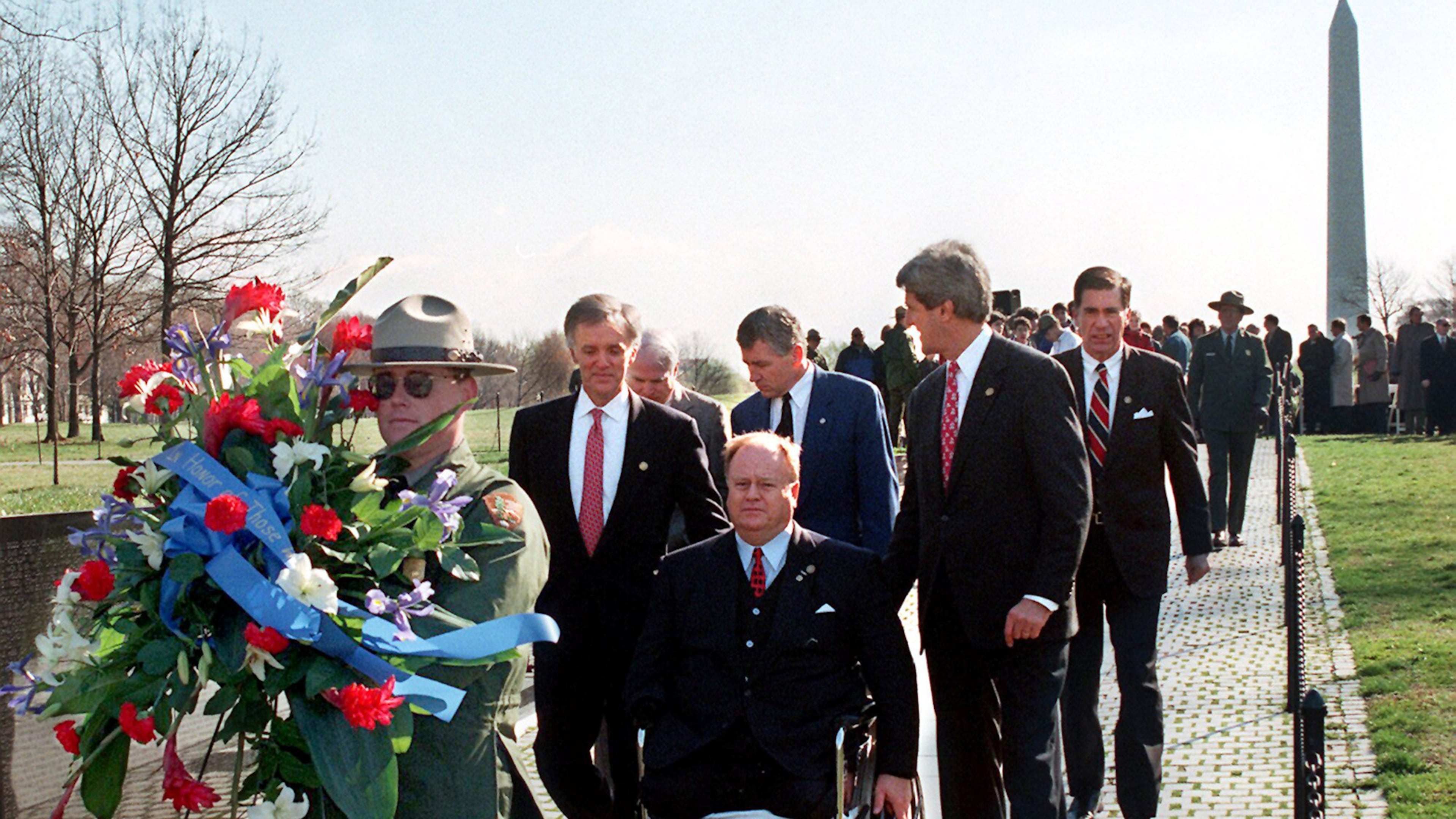Vietnam War still isn’t over for my father and other Agent Orange victims

We first noticed my father’s hands shaking in 2018. It was his grandson’s First Communion, and as we knelt together in the pew, he couldn’t stand without trembling.
My mother brought him to several doctors before his family physician, aware of his military service, asked:
“Did you serve in Vietnam?”
“Yes. Why?”
“Where?”
“Da Nang, Cam Ranh Bay.”
“You should check with the VA. You may have been exposed to Agent Orange.”
Vietnam? That was half a century ago — ancient history, my father said. Besides, his service in Vietnam was a source of immense pride, not pain.
He served onboard the U.S. Coast Guard Cutter Hamilton, one of the few Coast Guard combat deployments to Vietnam. He served his nation honorably like his father in World War II, returning home seemingly unscathed. He married, raised a family and retired.
A small percentage of exposed veterans receive benefits
At the Veterans Affairs hospital in Providence, the diagnosis came quickly: Parkinson’s disease, a presumed result of exposure to Agent Orange in Vietnam. Fifty years later, the war had come roaring back, laying claim to his body.

Agent Orange, a toxic defoliant used to strip forests of cover for enemy troops, was one of the most destructive legacies of that war. It poisoned not just the landscape but the people — Americans and Vietnamese alike. Though its use was halted in 1971, millions were exposed through air, soil, and water. Decades later, it continues to haunt both nations, an enduring legacy of a war many would prefer to forget.
Parkinson’s is just one of the many neurological disorders, cancers and other diseases caused by exposure to Agent Orange.
The connection to Agent Orange is so clear that when a veteran is diagnosed with one of these conditions, the VA presumes it was caused by their military service if they served in certain regions of Vietnam. To help my father receive benefits, we dug through his old military records, tracked down shipmates who could attest to his service and pieced together a record of where and when he’d been exposed. Eventually, we succeeded.
We were lucky: according to the Government Accountability Office, just 8% of Vietnam veterans who filed claims with the VA for herbicide exposure were granted benefits. My father insists he gets too much from Uncle Sam, but I often wonder how many other disabled veterans who were exposed to Agent Orange suffer in silence, never realizing their illnesses are service-connected.
Let’s thank veterans and strengthen the VA too
The Vietnam Veterans Memorial in Washington, D.C., lists more than 58,000 names — lives lost during the war. Yet this devastating tally still undercounts the legacy of Vietnam, whose casualties grow with every Agent Orange-related diagnosis. Fifty years later, the war rages on in hospital rooms and nursing homes.
It also rages on in Vietnam. By one measure, more than 400,000 Vietnamese have suffered death or permanent injury from Agent Orange exposure, and half a million babies have been born with birth defects. Agent Orange seeped into the soil and water, causing severe birth defects and cancers that have harmed generations.
Veterans Day is meant to honor service and sacrifice. But it should also remind us that the true cost of war often reveals itself long after the parades are over. It’s written in medical charts, in the fine print of VA claims, and in families navigating illnesses no one sees as part of the battlefield — at home, and abroad.
This year, as we thank veterans, we should ask harder questions: During a time of cutbacks, how do we ensure the VA remains strong and accessible, especially as new generations of veterans face their own invisible injuries from burn pits to other toxic exposure abroad? How do we reckon with the environmental scars of war that cross borders and generations?
Today marks a half-century since the Vietnam War ended in 1975. But for my father, for thousands of veterans like him, and for millions of Vietnamese, it never really ended at all.
Wars don’t end when the last soldier comes home. They echo forward through time, written in our bodies, our soil, our water.
Mark Nevitt is a third-generation veteran and professor of environmental law at Emory University School of Law. He previously served as both a tactical jet aviator and Navy Judge Advocate General officer.

